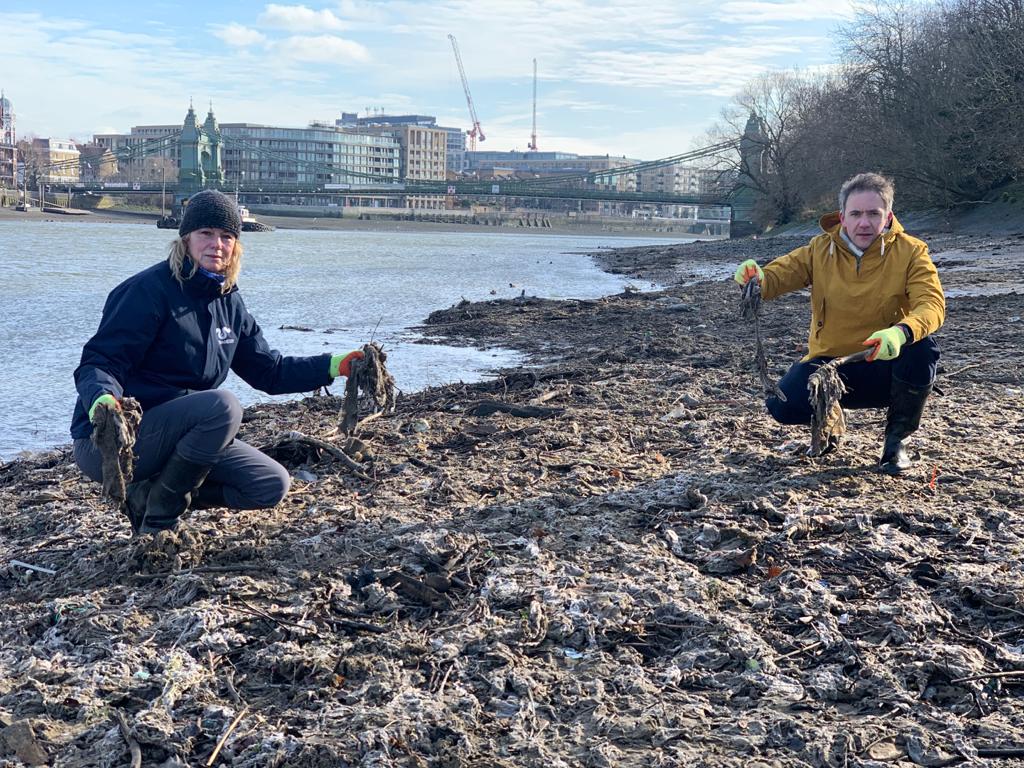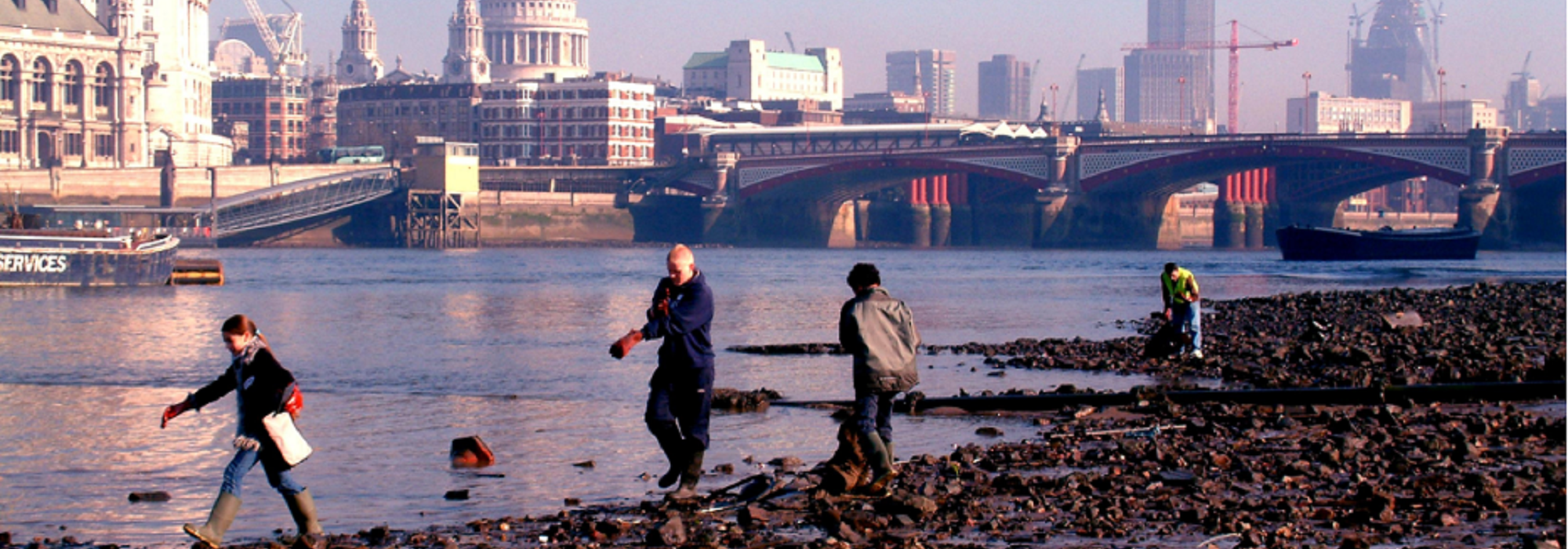Thames21 raises alarm about river sewage crisis
Thames21 helped raise the alarm about the UK’s river sewage pollution crisis last week – by contributing to a hard-hitting BBC documentary.
Thames21 opened last Monday’s BBC Panorama’s documentary, The River Pollution Scandal, by highlighting the impact of sewage discharges into the river Thames.

CEO Debbie Leach took stunned Panorama reporter Joe Crowley to a mound of thousands of wet wipes on the Thames foreshore at Barnes. ‘This is raw sewage. Everyone’s excrement going into the river Thames – the river that people love and want to enjoy and picnic beside. It’s absolutely obscene,’ she told the nation’s viewers.
London’s overloaded sewage system routinely discharges raw sewage into the Thames, on average once a week. The city’s combined sewer overflow (CSO) system was designed to be a safety valve for occasional use, to prevent sewage backing up into people’s homes when the sewage system is overloaded. But discharges have become regular and routine.
London’s new Super Sewer, the Thames Tideway Tunnel, is being built to intercept the millions of tonnes of sewage discharging into London’s main river. This will help reduce the problem, but sewage issues persist on other rivers in London and other stretches of the Thames. It’s a national problem; across England in 2019, raw sewage was released more than 150,000 times.
‘Our rivers are far more polluted than they should be, as the Panorama programme reveals,’ said Debbie Leach. ‘Not only does this threaten our wildlife, it also threatens the health of those who want to swim or paddle in our rivers. In extreme cases, when raw sewage causes oxygen levels to drop dramatically, thousands of fish can die in fish kill events. We need urgent action now.’
The River Pollution Scandal shines a spotlight on some of the UK’s polluted rivers and reveals shocking new data on illegal sewage discharges around the UK. The programme is still available to view.
The Thames footage was captured on a freezing day back in February, when Thames21 showed the BBC Panorama team around one of the five Thames sites where wet wipes have accumulated in such quantities they have physically changed the shape of the riverbed and are informally known as the Great Wet Wipe Reef.
At one location on the foreshore at Barnes, the wet wipe area stretches for more than 155m2 with one mound growing by nearly a metre in height over the past five years, despite Thames21 volunteer events which have routinely removed thousands of wet wipes from the site in just a few hours.
‘We’re pleased that the government has pledged to reduce sewage and improve transparency as part of the Environment Bill, yet to become law,’ said Debbie Leach. ‘But legal targets have not been enough in the past to beat pollution: rivers across the country are still not meeting the legal Water Framework Directive targets for healthy rivers. River Trusts like Thames21 can play a key role in monitoring our local rivers and holding government and regulators accountable.’
‘Along with other environmental organisations, we’ll monitor the situation to ensure the government keeps its promises in full as the Bill becomes law, and hold agencies accountable for delivering on those pledges.’
Only 7% of Britain’s rivers are in good health, and sewage pollution is one of the major causes. Sewage pollution comes from faulty sewage infrastructure, including CSOs, sewage processing sites and misconnections (pipes wrongly connecting home drainage systems to the nearest river).
Here’s what you can do!
- check if your local river is affected by sewage discharges and how often
- sign up for Thames21 free citizen science training
- join our river cleanup and citizen science events
- Donate to Thames21’s work protecting rivers
- Reduce rainwater entering the sewage system from your own property
- Bin, don’t flush wetwipes. Better still, choose reusable alternatives
What government and water companies need to do
- Make sewage discharge data publicly available
- Invest in sewage infrastructure including sewage treatment plants
- Enable more green spaces, wetlands and sustainable drainage systems to soak up rainwater before it floods the sewage system
- Enforce more accurate wet wipe labelling
- Improve public awareness to #bindontflush in order to stop wet wipes choking up the sewage system
What Thames21 is doing
Thames21 is building better understanding and awareness through its free citizen science training programmes, data reports and river clean-up events.
Thames21 is also involved in the creation of new green spaces and wetlands in London, to help intercept water and pollution.
Thames River Watch citizen science data, collated by Thames21 volunteers, has created better understanding and awareness of how sewage and plastic pollution are impacting the river: most of the wet wipes contain plastic, adding to the plastic pollution issue our waterways face. Read the Plastic Pollution Report and watch out for mass citizen science Big Wet Wipe Counts later this summer.
The Oxford Rivers Project partnership, hosted by Thames21, brings together local campaign group #endsewagepollution, Oxford City Council, the Rivers Trust and Thames Water and empowers citizens to test water quality to establish how much sewage pollution is entering the Thames and Cherwell – with the aim of applying for bathing water status at Oxford.
